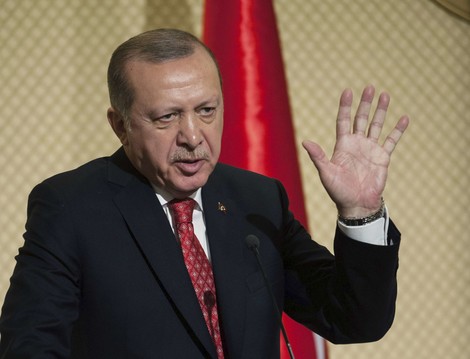Your podcast discovery platform
Curious minds select the most fascinating podcasts from around the world. Discover hand-piqd audio recommendations on your favorite topics.

piqer for: Global finds Globalization and politics Technology and society
Turkish journalist, blogger and media expert. Writes regular columns for The Arab Weekly and contributes to Süddeutsche Zeitung, El Pais and the Guardian. An European Press Prize Laureate for 'excellence in journalism' in 2014, Baydar was awarded the prestigious 'Journalistenpreis' in Germany by Südosteuropa Foundation in February 2018.
Will 2017 Mark The End Of Erdoğan's Neo-Ottomanism?
Turkish President Recep Tayyip Erdoğan has been engaged in a surprise move with the Arabic leaderships lately, in a spat on the differences of opinion concerning the Middle East's Ottoman past.
The rift developed on claims stemming from UAE Foreign Minister Abdullah bin Zayed Al Nahyan's tweets, that said Ottoman general Fahreddin Pasha had stolen relics from Medina. Erdoğan retaliated by saying that it was a treacherous remark, accusing Arabs of stabbing Ottoman Turkey in the back by cooperating with invading British and French forces.
The element of surprise is that the statement comes from Erdoğan, who until recently had opposed the Turkish traditional rhetoric that accused the Arab subjects of the Ottoman Empire. He has abandoned that line.
The spat marks the end of Turkey’s neo-Ottoman dreams in the Middle East. The 2013 military coup that toppled Erdoğan’s allies in Egypt’s Muslim Brotherhood government and the disappointments of Turkey’s inability to effect a favourable outcome in the Syrian civil war have put paid to ambitions to extend Turkish influence from Aleppo to Cairo.
The question is how Erdoğan wants to be perceived domestically in terms of Turkey's relations with the Arab world in general. His moves are seen in Arab capitals as wobbly; he is not seen as a stable leader in his positioning, causing confusion.
Erdoğan is still able to project through state-controlled media the false narrative of his claim to be the sole protector of the Muslim faithful to consolidate domestic support and offset unease about an economic downturn and creeping authoritarianism. But as Saudi Arabia, the UAE and Egypt assume a more defiant pan-Arab political tone against Turkish and Iranian interference in the region, Erdoğan is likely to fall back on rhetoric accusing Arabs of stabbing Turks in the back.2017 will be remembered as the year when Turkey’s neo-Ottoman expansionism came to a halt.
